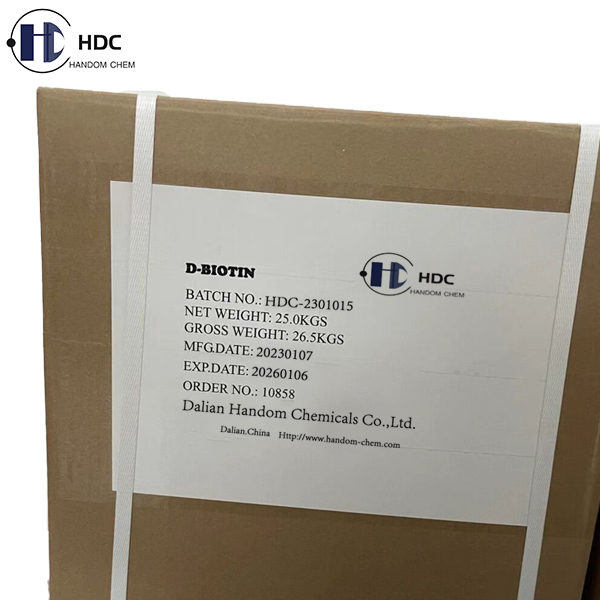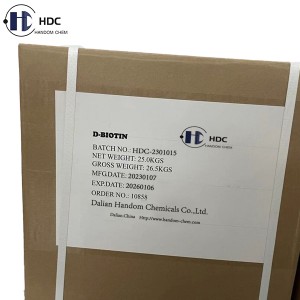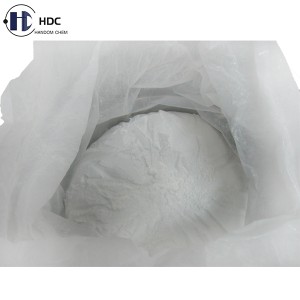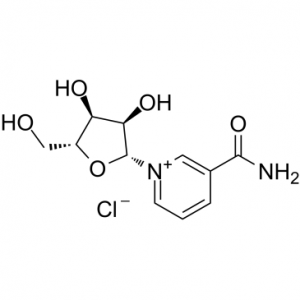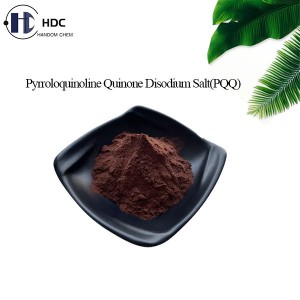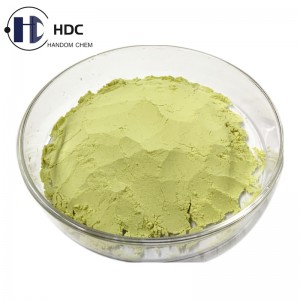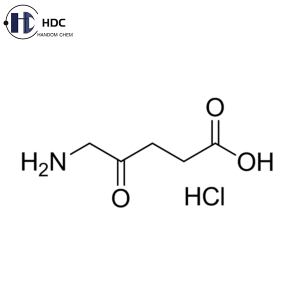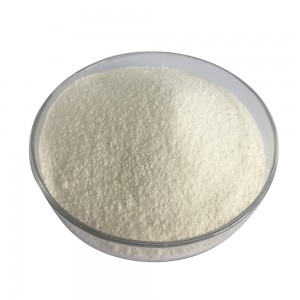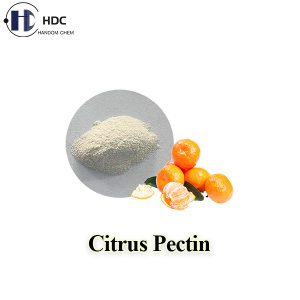Biotin
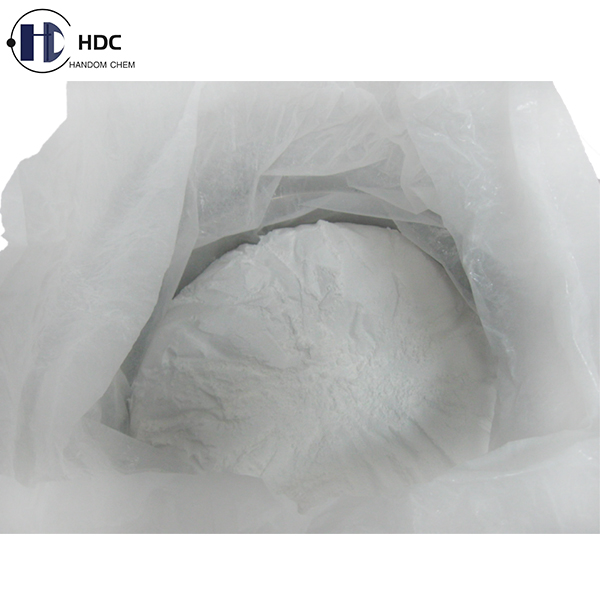
Brief Introduction:
Biotin, also known as vitamin H and coenzyme R, is a water-soluble vitamin and also belongs to the vitamin B family. It is a necessary substance for the synthesis of vitamin C and is indispensable for the normal metabolism of fat and protein. It is a necessary nutrient to maintain the natural growth, development and normal human body function and health of the human body.
Specifications of D-Biotin:
| Test Items | Specifications | Test Methods | |
| Description and solubility | Practically white, crystalline powder. Very slightly soluble in water and in alcohol; insoluble in other common organic solvents. | Visual | |
| Identification | A. Infrared absorption | To match with the reference IR spectrum | USP<197> |
| B. Specific optical rotation | Meets the requirements | USP<781S> | |
| C. HPLC | The retention time of the major peak of the Sample solution corresponds to that of the Standard solution, as obtained In the Assay. | USP | |
| Assay | 97.5% ~ 102.0% | HPLC | |
| Related Compounds | Individual impurity | Not more than 1.0% | HPLC |
| Total impurities | Not more than 2.0% | HPLC | |
| Optical Rotation | +89° ~ +93° | USP<781S> | |
| Residual solvents(Toluene) | Not more than 890ppm | USP<467> | |
Physiological Function:
1. Participate In the Lipid Metabolism of The Body:
Biotin is involved in the synthesis of fatty acids and is also an essential substance for the normal synthesis of long-chain unsaturated fatty acids and fatty acid metabolism. In addition, biotin is also related to the synthesis of acetylcholine and cholesterol metabolism.
2. Participate In the Body's Protein and Nucleic Acid Metabolism:
Biotin plays an important role in protein synthesis, amino acid deamination, purine synthesis, carbamoyl transfer, and leucine and tryptophan catabolism. It is also necessary for the transfer decarboxylation of a variety of amino acids.
3. Participate In the Carbohydrate Metabolism of The Body:
Biotinidase is involved in catalyzing decarboxylation and carboxylation reactions and is an essential component of the tricarboxylic acid cycle. It participates in and affects the metabolic process of decarboxylation of pyruvate to oxaloacetate, conversion of malic acid to pyruvate, interconversion of succinic acid and propionic acid, and conversion of oxalosuccinic acid to n-ketoglutaric acid.
4. Participate In the Metabolism of Other Substances:
Biotin is also used as a coenzyme component to participate in the metabolic processes of other nutrients such as methyl transfer reaction and sugar metabolism. At the same time, biotin is also related to the activation of lysozyme and the function of sebaceous glands; it is closely related to the metabolism of folic acid and pantothenic acid.
Applications:
♔ Nutritional supplements: Biotin can be used in the food industry as a processing aid. This product has physiological functions such as preventing skin diseases and promoting lipid metabolism.
♔ As a food fortifier: Biotin can be used in food for infants and young children, the recommended dosage is 0.1mg/kg~0.4mg/kg, and 0.02mg/kg~0.08mg/kg in beverages.
♔ Biotin can be used for labeling proteins, antigens, antibodies, nucleic acids (DNA, RNA), etc.
♔ As a feed additive: Biotin can also be used in poultry and sow feed, usually the mass fraction of the premix is 1%~2%.
Packaging:
10kg/carton or 20kg/carton with food grade PE bag inside.
Storage Conditions:
Preserved in unopened original containers in a cool dry place before using; kept away from direct sunlight, heat, moisture and oxygen.
Shelf Life:
This product may be stored for 36 months in the unopened original containers at room temperature.


